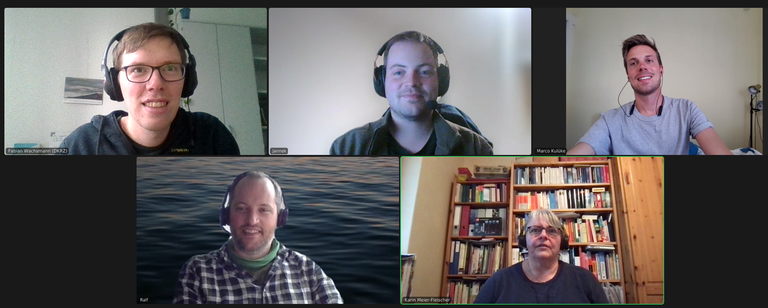10.11.2021
Each day of the course was dedicated to a separate topic: First, the team introduced the participants to the use of basic tools such as Unix Shell, Git, Conda or Jupyter, which are important for practical work with Python. On the second workshop day, the basics of Python programming were taught, with the most important aspects from data types to syntax being presented. Data analysis tools such as Numpy, Xarray and CDO were dealt with on the third day of the workshop. More complex applications such as the simplified, Python-based weather model Globagrim and Python-based solutions for the visualization of climate data were finally presented on the last workshop day. The speakers were supported by Karin Meier-Fleischer, who provided – when required the participants with personal support.
For their certificate, the students were offered five topics to choose from in order to apply their newly acquired skills in an examination task. For example, one group analyzed a data set with Xarray and another group reproduced an analysis from a study for current CMIP6 research data.
Due to the overwhelming demand, the DKRZ plans to offer this course regularly. The workshop was fully booked within minutes and many interested parties were still on the waiting list.

Tutor team of this Python course - top: Fabian Wachsmann (Data management), Jannek Squar (Research Group Scientific Computing) and Marco Kulüke (Data management), bottom: Ralf Müller and Karin Meier-Fleischer (Applications).
